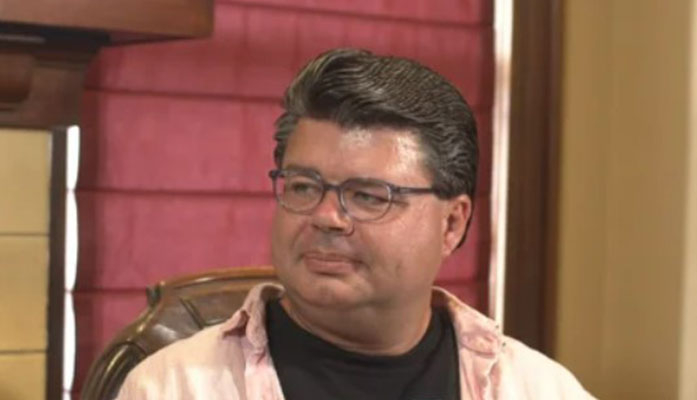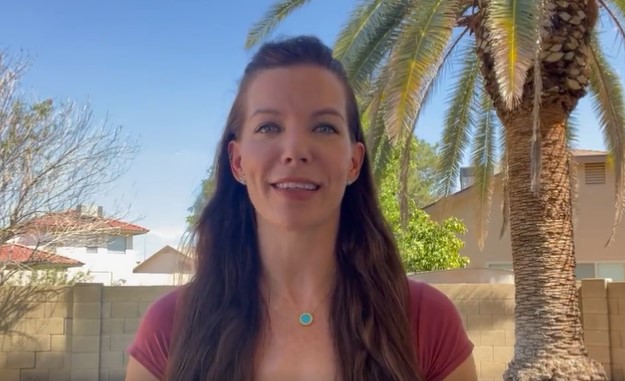
by Daniel Stefanski | Sep 23, 2023 | News
By Daniel Stefanski |
Amid an already historic crisis at America’s southern border, the Border Patrol Union is sounding major alarms about the consequences being foisted upon Arizona communities.
On September 14, the Border Patrol Union “X” account shared insights on the catch and release of thousands of illegal aliens in southern Arizona, writing, “DHS personnel in Arizona are now using the term ‘freedom runs’ when instructing BP agents about mass releases of illegal aliens in Tucson. There is almost no manpower left for enforcement duties as agents’ calls for assistance go unanswered and the vast majority are tied up with huge numbers of surrendering border crashers. Agents have been instructed to prioritize the processing of surrendering illegal aliens instead of patrolling the border.”
The account added, “And while all this sanctioned lawlessness ties up resources, the murderous cartel thugs continue to run hugely successful border operations while making billions of dollars smuggling missions of illegal aliens, tons of fentanyl and whatever else they want to send here, courtesy of Joe Biden. The Biden Admin will not be satisfied until every last spark of BP agent morale is extinguished.”
The U.S. Department of Homeland Security released official numbers of southern border apprehensions for August late Friday, showing that over 230,000 migrants had been encountered by agents in the field, putting the total number for the Fiscal Year at more than 2,200,000.
A reporter for Fox News confirmed that the “total migrant encounters for FYTD23 have surpassed FY22 total setting a new record” – with one month remaining in the fiscal year.
Arizona State Representative Quang Nguyen has also taken to his “X” account to share reports of chaos and lawlessness from the southern border. Earlier this week, he relayed a memo from someone at the border, which read, “It’s out of control down here! the Border Patrol agents were told to cease all law enforcement operations, no arrests allowed! they are all processing and transporting aliens now. They are dropping off aliens all over town at shopping centers. The Tucson Sector is avg 12,000 apprehensions a week, and that is just the give ups. There are no agents in the field, so all aliens not giving up (the bad ones) are just freely walking north because there are no agents working in the field! The trail cameras across the state are going off non stop with groups, and no agents are allowed to respond. It’s gone! we lost!”
Representative Nguyen followed up with another post on Friday – this one about what the illegal aliens were leaving behind as they made their way into the United States. He said, “Another text from the border today: ‘Trash left behind by the aliens sneaking into this country… OVER 50+ miles north of the border on Arizona State Trust land. Every wash out here is littered with trash.”
The Border Patrol Union also recently opined on the border cartels’ prowess at the border, saying, “Criminal cartels are making billions dumping illegal aliens at places of their choosing along the border & tying up overwhelmed BP resources with ‘asylum’ claims while moving fentanyl and whatever else they want in other places. They own this border. Biden is their best buddy.”
Fentanyl drug seizures have largely increased by U.S. Customs and Border Protection officials in Fiscal Year 2023, with over 25,000 pounds apprehended in the past 11 months – approximately the combined numbers for fiscal years 2021 and 2022 of encountered fentanyl. According to a December 22 article in the Washington Post, “federal agents estimate that they are seizing about 5 to 10 percent of the drugs coming from Mexico – if that much.”
Daniel Stefanski is a reporter for AZ Free News. You can send him news tips using this link.

by Corinne Murdock | Sep 23, 2023 | Education, News
By Corinne Murdock |
The controversial Drag Story Hour Arizona is led by an Arizona State University (ASU) professor David Boyles.
Boyles established Drag Story Hour Arizona in 2019, a chapter of the national Drag Story Hour organization established in 2015, the same year that the Supreme Court struck down state laws banning gay marriage.
For his drag queen story hour work, Boyles has been featured in several “The Art of Drag” events alongside one of his drag queen storytellers, hosted by various local libraries and Arizona Humanities, a nonprofit affiliate of the National Endowment for the Humanities (NEH) United We Stand initiative.
The most recent event occurred on Wednesday. In his presentation, Boyles said that the notion that drag shows are harmful to children was a “myth.” He also said that drag queens have been long considered the leaders of LGBTQ+ communities.
In a predictor of what’s to come, Boyles said that the growing acceptance of LGBTQ+ ideologies would allow for more expansive public displays of drag. Boyles cited “Divine” as an example, a drag queen who starred in films purposefully designed to scare “straight society” — in one of his most infamous films, he ate dog poop (not a prop, real dog poop). Boyles hailed Divine as a paradigm.
“[His work was] intended to freak out the straight society in all meanings of that word, of the straights, both the heterosexuals but the squares,” said Boyles. “As queer identity and queer culture becomes more mainstream, kind of comes out of the shadows again, it opens up space for drag to take a lot of different shapes in a lot of different forms.”
Boyles then promoted the practice of drag in minors, referencing 13-year-old Canadian boy Bracken Hanke, who starred for several years in the Disney series “Gabby Duran & The Unsittables.” Boyles said that Hanke should be seen as an authority on valid perspectives of femininity, claiming Hanke is a girl.
“Who better to make fun of all the ideas of femininity than a teenage girl, you know, who has to deal with all these social pressures,” said Boyles.
At one point, Boyles’ counterpart for the event, Patrick Jervis-Stone as his drag queen persona, Felicia Minor, mentioned that Drag Queen Story Hour Arizona did a virtual story hour for Disney during the pandemic. However, Jervis-Stone stopped short of offering further details after Boyles whispered to Jervis-Stone that they “weren’t supposed to mention that.”
According to social media posts, Jervis-Stone conducted a Halloween-themed Drag Queen Story Hour Arizona virtual storytelling event for Disney+ and Hulu in October 2021.
Boyles also dismissed the idea that educators were attempting to recruit students into homosexuality. Boyles describes himself as the “head of recruitment” for “The Queer Agenda” on his Instagram.
It was with his book, “Life is a Banquet,” that Chandler Unified School District board member and Boyles’ friend, Patti Serrano, took her oath of office, rather than the Bible. Boyles’ book focuses on a 17-year-old boy being “indoctrinated” and “radicalized” into progressive beliefs by ASU students out of the values he’d learned from his conservative, Christian parents.
In book drafts posted online, Boyles writes at length about the sexual experiences and fantasies of the boy and his peers.
In another blog post, Boyles said Serrano’s act reminded him of when God commanded Abraham to sacrifice his son Isaac in the Bible. Boyles said that Christian parents resembled Abraham: their obedience to God by refusing to affirm LGBTQ+ behaviors in their children jeopardizes their children’s lives, not unlike how Abraham’s obedience to God jeopardized Isaac’s life. Boyles also accused Christians of viewing their children as “property” through their faith, and declared that every transgender suicide constitutes murder.
“[I]n this story of the original patriarch, we get an almost too on-the-nose description of the toxic patriarchal ideas that infect so much of modern right-wing religion, and white evangelical Christianity in particular,” said Boyles. “If your god is telling you that honoring him is worth slitting kids’ throats, do what Abraham should have done and tell him to f**k off and find a new god.”
Elsewhere on his blog, Boyles encouraged people to advocate for LGBTQ+-inclusive, pleasure-centered sex education for minors.
“[A]busive, patriarchal fundamentalists […] fear the liberatory power of queer sexuality,” wrote Boyles.
Boyles also encouraged people to plant pornographic LGBTQ+ banned books in local libraries, such as “Gender Queer” and “All Boys Aren’t Blue.”
*Warning: the following clip contains explicit sexual language*
Boyles noted in a post that “zines” — noncommercial, self-published, and often unconventional magazines produced at home or online, usually reproduced via copy machines — are an essential component of promulgating LGBTQ+ ideologies.
Several of Boyles’ students were promoted in his Substack for their zines. He recommended a zine on sex toys by one of his former students, Paige Daniel, an “abortion doula” for Planned Parenthood Arizona (PPAZ); Daniel’s other zines discuss sex education and self-managed abortions.
Boyles promoted a popular zine distributor (distro) among Phoenician progressives, Wasted Ink Zine Distro (WIZD), host of the annual Phoenix Zine Fest. The distro specializes in promoting “historically marginalized creators,” specifically the non-white, LGBTQ+, disabled, chronically ill, or neurodivergent. WIZD receives funding from the city of Phoenix’s Office of Arts and Culture, as well as the Arizona Commission on the Arts through the state and National Endowment for the Arts.
Haley Orion — known online as Arizona Right Wing Watch, an account that posts research on “far-right losers and hate politics” — formerly worked for and published her own zines through WIZD.
Orion recently took issue with the fallout prompted by a post issued by her equal opposite, Chaya Raichik of Libs of TikTok, about the University of Arizona nursing students course engaging with children as young as three about gender identity.
Like Orion, Boyles advocates for other progressive causes in addition to LGBTQ+ issues, such as abortion, gun control, climate change activism, police defunding, and Black Lives Matter (BLM). He formerly served as a board member for NARAL Arizona and the Abortion Fund of Arizona, as well as a research coordinator for White Hat Research & Policy Group.
On his public Instagram page, Boyles posts LGBTQ+ content consisting of gay erotica art, his cross-dressing, drag queens, paganism, witchcraft, advocacy for gender transitions for minors, sex toys, drugs, criticisms of Republicans, and arguments against Christianity.
In a February opinion piece, Boyles declared that LGBTQ+ storytelling to minors was important to “counter the erasure of queer stories.” Boyles also advocated for minors to attend drag shows.
Corinne Murdock is a reporter for AZ Free News. Follow her latest on Twitter, or email tips to corinne@azfreenews.com.

by Corinne Murdock | Sep 22, 2023 | News
By Corinne Murdock |
The Maricopa County Superior Court ruled on Wednesday that the city of Phoenix violated the law by enabling the existence of the infamous mass homeless encampment downtown known as “The Zone.”
Judge Scott Blaney declared in his ruling that the city displayed utter disregard for law-abiding citizens, instead issuing preferential treatment to the homeless by tolerating lawbreaking.
“[I]n their zeal to assist homeless individuals occupying the Zone, City personnel appear to be utterly indifferent to the plight of the City’s constituent property owners, their families, and small business owners that are attempting to make a living,” said Blaney. “The City’s refusal to meaningfully enforce statutes and ordinances in the Zone has created a classic siren song to certain individuals that are enticed at their peril by the Zone’s drugs, sex, and lack of societal rules.”
READ OUR PAST INVESTIGATIONS ON THE ZONE HERE
Blaney ordered the city to clear The Zone by Nov. 4, and keep the area clear of encampments and biohazards associated with the homeless (public defecation, drug paraphernalia, trash) thereafter. Blaney directed counsel for all parties to reconvene on Nov. 30 to review the city’s compliance with his order.
Blaney ruled that the city “intentionally” stopped or materially reduced the enforcement of criminal, health, and quality-of-life laws in The Zone; transported homeless individuals into The Zone with taxpayer-funded “courtesy rides” from police officers and community partners like Community Bridges; and generally allowed and even encouraged the occupation of The Zone.
As such, Blaney said the city was to blame for the increase in violent crime, organized crime, public drug use, biohazards, property crimes, prostitution, public indecency, fire hazards, blocked rights of way, environmental deterioration, and businesses’ decline.
The judge noted that prior to 2018, homelessness was limited, encampments weren’t present in the area, and residents considered the area safe. The ruling traced The Zone’s origins to early 2019, when current Mayor Kate Gallego assumed office.
A major argument presented by the city for their neglect of The Zone was a lack of shelter beds. Blaney declared the city failed to provide credible evidence of this claim; he also pointed out that there’s an unknown number of homeless individuals who are homeless by choice. City representatives admitted at trial that they determine whether an individual is “involuntarily homeless” based on self-reporting, not an investigation into that individual’s case. Some, as Blaney said, could well have the means to secure shelter through government benefits or a disability pension.
City representatives also admitted in testimony that it was their strategy to not prosecute individuals within The Zone for any crimes committed. The representatives relied on euphemistic language to describe their decriminalization approach, expressing that they “would prefer” those individuals to not “become justice involved.”
Blaney determined that the city’s approach essentially legalized all crime for any individual within The Zone.
“[I]f a homeless individual is confronted for an alleged crime, the city’s strategy is to pursue services for the individual instead of a conviction,” said Blaney.
As reported by AZ Free News and told to the residents who sued the city, police officers were advised that “the Zone is off-limits to enforcement.” Blaney also noted that the city appeared to reverse this policy of keeping police out of The Zone following his preliminary injunction earlier this year.
Blaney also detailed police’s delayed response to emergency calls, resulting in non-actions like asking a homeless individual to leave private property but refusing to remove those offenders from public easements or sidewalks adjacent to the property, even if that individual was intoxicated or high on drugs.
The mass encampments grew from an impasse of “service resistant” homeless that apparently stumped the city with their preference to life on the streets. These “service resistant,” reportedly didn’t want to follow the rules of the shelters by giving up their contraband of drugs and weapons, their pets, their partners, or the many possessions they’d accumulated that wouldn’t fit in the shelter space. According to a 2022 survey of the homeless conducted by the city, nearly 20 percent expressed this sentiment.
It’s likely the “service resistant” recognized that they could have the best of both worlds: three meals a day and a steady supply of other resources, like heat relief or hygiene packs provided by the city at no cost with no questions asked, and the ability to live “rule-free” and partake in all the drugs, alcohol, and prostitution they desired without fear of punishment from law enforcement.
“Although unthinkable for the general public, there are many individuals in the Zone that choose to live in a tent on the sidewalks or in the street, with three meals each day provided by the Human Services Campus and the ability to engage in antisocial behavior and drug use,” observed Blaney.
The city defended their inaction over the impasse. Their witness, Sheila Harris, attempted to convince Blaney of her plan to implement “permanent supportive housing” or “housing first,” in which homeless individuals are given the housing and then all other problems, like drug addiction, are dealt with afterward. Harris was credited as the main expert behind the city’s current approach in solving homelessness.
Blaney rejected Harris’ proposal. He sided with the perspective that the enforcement of laws resulted in more law and order, not less.
Blaney said that Harris’ “unusually soft” and “more expensive” approach wouldn’t come close to solving the causes behind homelessness or the myriad of dangers they’ve created, namely mental health and drug issues. Rather, Blaney pointed out that the increased enforcement of laws and interventions have proven to incentivize the homeless to either return to live with friends or family, move into transitional housing, or move to other cities with “more permissive laws” and no camping bans.
“According to Dr. Harris, the City of Phoenix’s plan, which she helped create, uses less enforcement and instead looks to an individual’s wants and needs,” said Blaney. “Although the Court agrees that all individuals, homeless or not, deserve to be treated with dignity, the Court does not believe that Dr. Harris’ unusually soft approach to addressing the dangerous and chaotic conditions in the Zone would be effective.”
Blaney also expressed doubt in the city’s estimation that 70 percent of individuals accepted services which translated into a permanent movement from the streets. The judge said that number was potentially misleading, noting that the city wasn’t able to disclose how many of those individuals accepted a “free hotel room for the night” before returning to The Zone the next day.
Unlike the homeless, the city would enforce laws on regular citizens, Blaney noted. The judge pointed out the irony of the city’s arbitrary enforcement of right-of-way law in its handling of a local business who took the opportunity presented by some gas line work to install sculptures in a spot where the homeless had been encamped. Yet, the city took no issue with the homeless encampment in the same spot also in violation of right-of-way law.
Corinne Murdock is a reporter for AZ Free News. Follow her latest on Twitter, or email tips to corinne@azfreenews.com.

by Daniel Stefanski | Sep 22, 2023 | News
By Daniel Stefanski |
Second Amendment advocates recently had something to cheer thanks to a judicial decision from a federal appeals court.
Earlier this month, the United States Court of Appeals for the Ninth Circuit issued an opinion against the Center for Biological Diversity in a case that featured a legal question over lead ammunition. The United States Forest Service and the National Rifle Association of America were defendants in the matter.
The case has tarried in the judicial system since 2012, bouncing back and forth from the district and appeals court levels. The plaintiffs filed the legal pleadings over their contention that California condors were ingesting and perishing from lead ammunition left behind by hunters in the Kaibab National Forest.
“This NRA victory is a significant setback for gun control and anti-hunting advocates who see ammo bans as a pivotal leap in their agenda,” said Michael Jean, the Director of the Office of Litigation Counsel with the Institute for Legislative Action.
According to the summary of the decision from the Ninth Circuit, “The panel affirmed the district court’s dismissal for failure to state a claim of an action brought by the Center for Biological Diversity and others alleging that the United States Forest Service was liable as a contributor under the Resource Conservation and Recovery Act (RCRA) by failing to regulate the use of lead ammunition by hunters in the Kaibab National Forest in Arizona.” The opinion added, “Although the Forest Service has broad authority to regulate hunting and fishing activities, it rarely exercises its authority to preempt state laws related to hunting and fishing; hunting activities are primarily regulated by the State of Arizona.”
U.S. District Judge Stephen M. McNamee, in his July 2013 ruling, highlighted that even if the plaintiffs received the opinion they were seeking, the California condor might very well still be at risk due to its migration habits. He wrote, “The Court also notes that the behavior and feeding habits of the California condor and other avian species make it unlikely that even if Defendant were to ban lead from being discarded within the KNF, the condor would no longer suffer from the lead poisoning that causes Plaintiffs’ alleged aesthetic injury. The California condor is known for long distance travel. Their longer trips consist of arching loops that reach from eastern Nevada, through southwestern Arizona, to the New Mexico border. They are also known to fly into Utah in pursuit of carrion. The condors could easily fly and subsequently feed outside the borders of the KNF and therefore outside of the area managed by Defendant. Plaintiffs give no indication that any of these other states ban the use of lead ammunition. Because of the extensive range of the California condor, it is likely that those birds that inhabit KNF will travel to those areas in search of carrion and ingest lead ammunition in the same manner as lead ingested within KNF borders.”
In an exclusive interview with AZ Free News, Arizona Representative Austin Smith shared his thoughts on the Court’s opinion, saying, “The recent 9th Circuit decision is an important victory for hunters, sportsman, and shooting enthusiasts across Arizona. I’m pleased to see this attempt to regulate ammunition by the radical gun control and anti-hunting lobby failed. As a 5th generation Arizona hunter and angler, this will serve as great precedence in preserving our Second Amendment and hunting heritage on the Kaibab.”
Daniel Stefanski is a reporter for AZ Free News. You can send him news tips using this link.

by Daniel Stefanski | Sep 22, 2023 | News
By Daniel Stefanski |
A former Arizona legislator is running for office again – albeit for a different position than she previously held.
Former State Senator Michelle Ugenti-Rita announced her candidacy for the office of Maricopa County Supervisor for District 2, which is currently occupied by Supervisor Thomas Galvin. Galvin was appointed by the Board of Supervisors when the former officeholder, Steve Chucri, resigned his seat in 2021.
After his appointment, Galvin won his first election in 2022.
Ugenti-Rita came out swinging against her opponent, asserting that District 2 voters “have been deeply disappointed by (Galvin’s) actions while in office. She listed “defending botched elections, fiscal mismanagement (including support for the Prop 400 transportation tax increase) or abdicating his responsibility to the residents in Rio Verde Foothills when they desperately needed a solution for their water problem,” as grievances against Galvin’s short tenure in office.
The former legislator also slammed the Board as a whole, which will likely be a common refrain of her campaign. She wrote, “For too long, the Maricopa County Board of Supervisors has lacked transparency, flown under the radar without accountability and been beholden to entrenched bureaucrats and special interests. It is time to call them what they really are, RINOs, and expose the county cartel that has been facilitating and perpetuating a liberal woke agenda.”
In her lengthy statement, Ugenti-Rita also proved that she would be all too willing to pit her conservative credentials against her perception of Galvin’s, adding, “District 2 is a Republican district and the voters want and deserve a Supervisor who reflects those conservative principles. They are tired of being sold out time and time again when politicians like Galvin who claim to be conservative in order to win their vote, then turn around and support bloated budgets, tax increases and woke gender politics that only succeed in growing government. This stands in stark contrast to my unmatched 12 year record of successfully delivering conservative results to the voters.”
Ugenti-Rita shared that she had garnered the “continued support and endorsement of Congressman David Schweikert” for her race. She included a quote from the U.S. Representative, which read, “Michelle has a stellar and proven record of principled, conservative leadership. I’m confident that she will make an excellent county supervisor. I’m proud to give her my full endorsement and I encourage my fellow Republicans to join me in voting for her in next year’s Republican primary.”
Schweikert wasn’t the only endorsement listed by Ugenti-Rita, who added Arizona State Senators John Kavanagh, Wendy Rogers, and Representatives Joseph Chaplik and Barbara Parker to her roster of early supporters.
The new candidate’s revelation wasn’t viewed favorably with some around Maricopa County. Michael Noble, an Arizona pollster, weighed in on the race, saying, “If you’ve ever met Supervisor Thomas Galvin or seen him perform his job of representing his district, you will find all of the stuff below by Ugenti is complete BS.”
On his campaign website, Galvin lists public safety, inflation, water, elections, economic development, transportation and infrastructure, and Highway US-60 as his priorities. He stated that his “beautiful wife and I are raising a young son who we want to grow up in a successful, prosperous, and safe Maricopa County.”
Galvin’s heart appears to come through strongest when talking about his passion for law and order and augmenting public safety in the county. He wrote, “Arizonans desire freedom, creating good jobs, and a strong economy. I share those values. We must maintain law-and-order in Maricopa County. That is why I am proud that the County has provided additional resources to the Sheriff’s office and the County Attorney’s office so that they have the tools and resources they need to fight crime. Illegal drugs are a scourge in our community. Maricopa County has the highest drug overdose death rate in Arizona. We need to reverse that. We need to stem the rising tide of violent crime.”
The incumbent Supervisor added, “I denounce and reject calls to Defund the Police. That is why I am proud of a budget that enhances law enforcement. And I’m proud to be endorsed by Police.”
Daniel Stefanski is a reporter for AZ Free News. You can send him news tips using this link.

by Corinne Murdock | Sep 21, 2023 | News
By Corinne Murdock |
The historic Turf Paradise racetrack in Phoenix responsible for generating thousands of jobs and hundreds of millions in revenue will close, with Gov. Katie Hobbs partly to blame. Those involved in the racetrack and in a failed deal to purchase it have offered accounts of Hobbs that indicate the governor neglects issues that won’t benefit her politically, even if they benefit the state.
As part of this apparent neglect, Hobbs removed a budget item over the summer that would have continued a $5 million COVID-19 relief grant to Turf Paradise, slashing it to $1 million. Hobbs has also reportedly refused to assist in legislative deals viewed as necessary to secure the purchase of the racetrack.
James Watson — managing partner of the California-based company that failed to close their deal on the racetrack, CT Realty — said Hobbs cut the funds because she “doesn’t care” about racing.
“We’ve been arguing, as is evident across the country, that racing is struggling right now. It needs all the help it can get,” said Watson in an interview with DRF. “But the governor doesn’t care about racing.”
The racetrack would bring in about $90 million into the local economy during its race meet session from November through May, according to the track’s general manager, Vincent Francia, in an interview with ABC 15.
The economic impact from Turf Paradise’s closure is expected to cripple the state’s horse industry. On top of the closure of the track’s 37 betting sites, the track’s leading trainer Justin Evans told BloodHorse that the farms, ranches, feed stores, horseshoers, apartment complexes, trailer parks, and all other businesses “down the line” that rely on the racetrack season for revenue will be crushed by the closure. Evans reported that he moved his family to Louisiana due to the closure.
“It’s gonna kill [the Thoroughbred industry, the racing industry in Arizona] because now people are going to other places and they’re going to make a new life and they’re not going to come back on a whim that it’s going to reopen or now everybody’s going to be gun shy like they are with Arizona Downs,” said Evans. “This is a terrible thing for the racing community, for the fans, for jocks, trainers, owners, and grooms.”
CT Realty’s deal fell through recently despite its projection to close in December. In addition to the funding, a critical contingency for their deal was the legalization of casino-type games, namely the historical horse racing machines. CT Realty reportedly earned lawmakers’ support on the legalization. However, tribal community lobbyists successfully stonewalled their efforts, arguing that the proposed gaming would jeopardize their gambling industry.
Per reporting by DRF, track owner Jerry Simms was also thwarted by tribal lobbyists in his attempts to obtain similar gaming legalizations over the years.
It’s likely an intervention by the governor would’ve saved the racetrack. Watson indicated to Axios last month that Hobbs had multiple opportunities to legalize the horse racing machines. This would’ve included working with the legislature to overcome tribal opposition earlier this year, or even calling a special session this fall to address the issue.
Such an exercise of power wouldn’t be unusual for Hobbs. Just several months ago, Hobbs stripped all 15 county attorneys of their authority to prosecute abortion cases. That authority went to her political ally, Attorney General Kris Mayes.
A partner in the failed track purchase, Larry Lucas with Revolutionary Racing, told Paulick Report that Gov. Katie Hobbs “lack of interest” in fighting for Turf Paradise’s survival had “frustrated” him.
Simms announced that the site will close on Oct. 1 and that he would retire. Simms purchased the track over 20 years ago for $53 million.
CT Realty planned to develop the site to maintain some horse racing, with other parts of the property turned into housing, industrial lots, and a data center.
Some locals also blamed Sims for difficulties that led to the track’s closure, a speculation that aligns with reporting issued over the years on open feuds with track officials and the large racing company 1/ST Racing.
Others opined the closure was the inevitable outcome of a dying industry.
Turf Paradise opened over 67 years ago, on Jan. 7, 1956, under a Phoenix millwork company owner named Walter Cluer. The businessman purchased 1,400 acres of the desert to establish the racetrack.
Corinne Murdock is a reporter for AZ Free News. Follow her latest on Twitter, or email tips to corinne@azfreenews.com.






